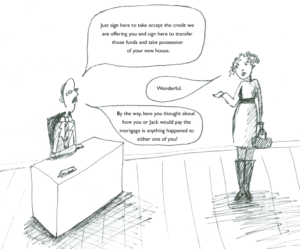 “Should I invest a lump sum now or drip it into the market over time?” This is a question we’re getting more and more often. As usual, the answer is not straightforward and of course … it depends.
“Should I invest a lump sum now or drip it into the market over time?” This is a question we’re getting more and more often. As usual, the answer is not straightforward and of course … it depends.
Despite the declines last year and the early part of this year, North American stock markets seem to have continued their upward march and are now at peak levels. European and Asian markets aren’t as close to peak levels but nonetheless investors are jittery and not sure if now is the best time to invest.
The US election is pending, Brexit implications are still playing out and the news generally tends to be doom and gloom. It’s understandable why people might hesitate if they have a lump sum of cash sitting on the sidelines and are unsure if now is the best time to put it at risk.
It’s not only about expected investment returns
There are two distinct views on what to do with a lump sum.
The first is that it’s best to invest right away.
The second is that it’s best to spread your investment over time, engaging in what is commonly referred to as “dollar cost averaging”. Dollar cost averaging might involve splitting your lump sum into four equal tranches and investing one tranche every three months over the course of a year. In doing so, you’d smooth the impact of market volatility, maybe missing some good upward trends but also maybe avoiding putting all your money in at once just before a market crash.
What does the evidence say? The academic research tells us that trying to time the markets is futile and at any given time we can expect a future positive return on investment. After all, the market generally goes up, in fact according to Jim Yih of Retire Happy the annual return of the TSX stock index was positive 73.9 % of the time between 1920 and 2010.
So the odds are in your favour that you’ll be better off by investing now – certainly not guaranteed but expected to be positive. Dimensional Fund Advisors (not that Nobel prize winners are always right but but this group has a strong evidenced-based approach to investments) say the following on this subject (from its website):
“Standard financial analysis says dollar cost averaging is suboptimal. If you focus only on your investment outcome, investing a lump sum immediately lets you construct the best portfolio you can today; slowing the process with dollar cost averaging just keeps you in something other than your best portfolio until you are done.”
Sensible and supported by good math I’m sure … but not the whole picture. They also go on to say:
“Behavioral finance provides a different perspective. Because of the difference between the way people react to errors of omission and errors of commission, dollar cost averaging may give investors a better expected investment experience.”
Essentially what this means is that while purely from an investment perspective the expectation is that one would be better off investing a lump sum today, it is not a certainty and when decisions have to be made when uncertain future outcomes are at stake psychology enters the equation in a big way.
An active decision to invest now followed by an unexpected poor outcome might scar an investor from making future beneficial investment decisions. Surely there are many people who, scared and scarred by the market carnage in 2008/2009, sold out at the bottom and have remained on the sidelines through the subsequent rally.
Or imagine if you’d invested a large lump sum a couple of weeks before Black Monday in 1987 instead of smoothing it out over the following year or so. You may find yourself hesitant to ever put money in the markets again! Investors that are liable to suffer extreme regret from their own active decisions that turn out to be wrong (errors of commission) may find that spreading a lump sum investment over time eases the blow sufficiently to keep them invested and on track with their investment plan.
Figure out what kind of investor you are, make a plan and stick with it
Market crashes don’t happen very often and at any given point in time investors should expect a positive return. This doesn’t mean that behavioural/psychological forces aren’t real and powerful.
So what are investors to do? To begin with, investors would be very wise to spend some time considering how they might react to various market scenarios – what kind of investor are you? Are you unphased by market volatility and immune to external pressures like the press and market pundits? Do you feel really nervous making a decision under uncertainty?
Try taking a risk survey or two to help gauge your willingness to take risk relative to other investors – a sort of investing gut check. Try to imagine yourself in these situations and practice how you might feel and react.
Lastly, put a plan in place ahead of time – take the decision out of your hands – blaming the plan might be psychologically easier than blaming yourself if things don’t turn out exactly as expected.
Decide now what the best course of action is for you and document it in a well thought-through plan. Then make sure to remember it’s often when the plan feels most uncomfortable that it’s most important to stick with it!
 Graham Bodel is the founder and director of a new fee-only financial planning and portfolio management firm based in Vancouver, BC., Chalten Fee-Only Advisors Ltd. This blog is republished with permission: the original ran on August 12th on Bodel’s blog here.
Graham Bodel is the founder and director of a new fee-only financial planning and portfolio management firm based in Vancouver, BC., Chalten Fee-Only Advisors Ltd. This blog is republished with permission: the original ran on August 12th on Bodel’s blog here.








